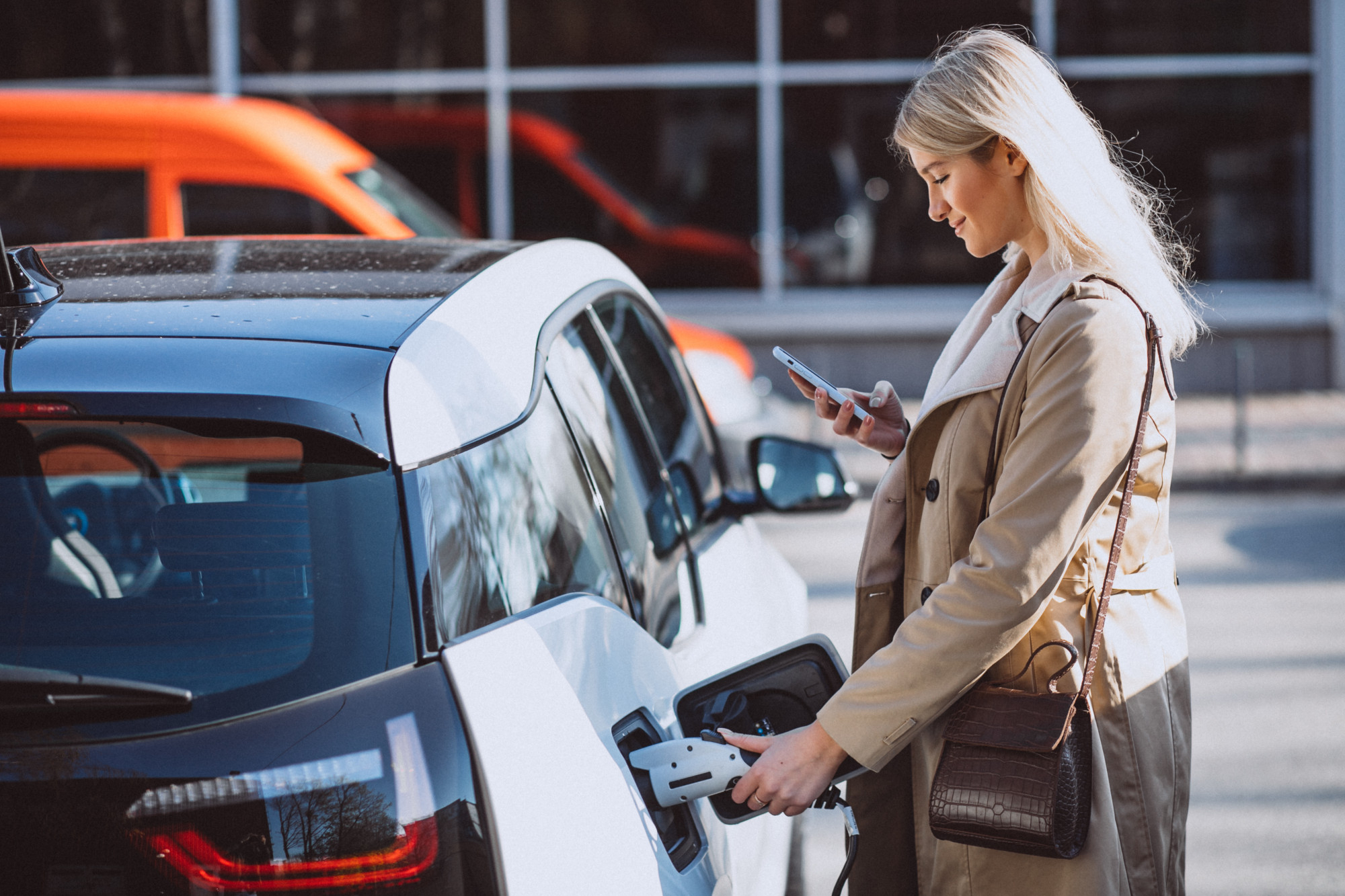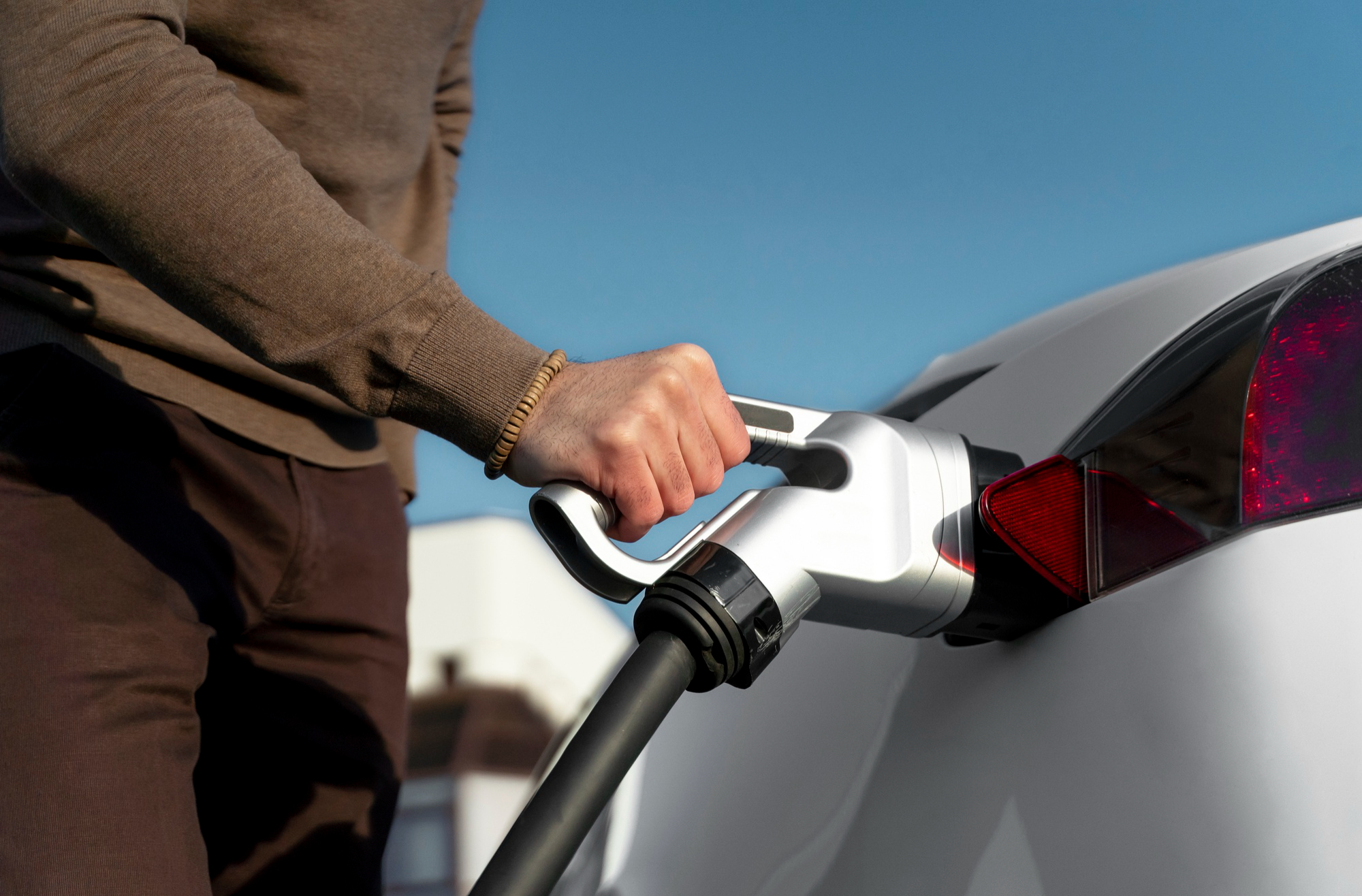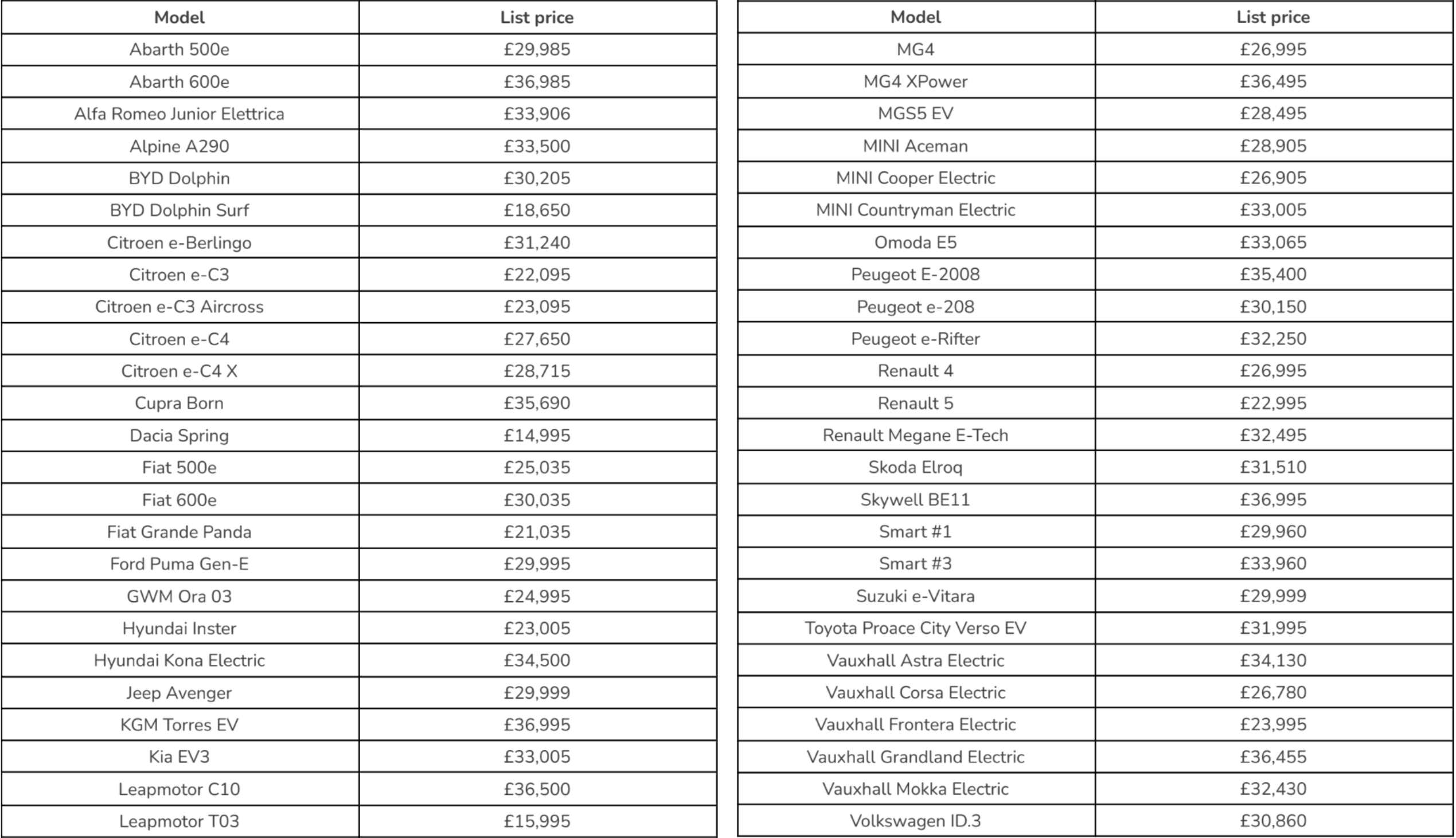UK EV Grant 2025
Jul 28, 2025 · 7 min read · news
More drivers than ever are choosing electric vehicles. According to the International Energy Agency, over 17 million EVs were sold worldwide in 2024, marking a rise of more than 25% compared to the previous year. The IEA also projects that this year, more than one in four new cars sold will be electric. The UK is leading the trend, with 381,970 fully electric vehicles sold last year, making up 19.6% of all new car registrations.
To support the move towards cleaner transport, the UK government has introduced a new EV grant offering savings of £1,500 to £3,750 on certain low-emission electric cars. The aim is to make EVs more affordable, back sustainable manufacturing, and reduce overall environmental impact.
Some details are still being confirmed, including which models will qualify and how the sustainability criteria will be applied. In this article, we look at how the grant works, which vehicles might be eligible, and what impact it could have on the market.

The UK EV grant offers £1,500-£3,750 off new electric cars.
What is the EV grant, and how does it work?
There’s a clear scientific consensus that electric vehicles have a lower environmental impact than petrol or diesel cars. According to a 2022 study by Buberger and colleagues, the “total life-cycle emissions of hybrid and electric vehicles are reduced by up to 89 % compared to internal combustion engine vehicles”. But while more drivers are making the switch, the higher upfront cost of an EV still holds some people back. This is where the UK government’s new EV grant comes in.
According to Heidi Alexander, the Secretary of State for Transport:
"The government is making it easier and cheaper to own an electric vehicle. Today (15 July 2025), the government has launched an Electric Car Grant to support the transition to zero emission vehicles and incentivise sustainable automotive manufacturing. (...) £650 million of grant funding will be available to purchase new zero emission cars priced at or under £37,000. Grants of £1,500 or £3,750 will make these cars more affordable and enable even more people to access the savings associated with driving electric. The grant will help unlock potential further savings of up to £1,500 a year in running costs for drivers, it will back UK and other manufacturers, with eligibility dependent on the highest manufacturing sustainability standards, driving growth in our automotive and charging sectors."
The grant is split into two levels: £1,500 for vehicles that meet basic environmental criteria, and £3,750 for those manufactured to the highest sustainability standards. Models that don’t meet these requirements won’t be eligible.
It’s also worth noting that the grant only applies to cars approved by the Department for Transport. If a vehicle is purchased before it appears on the official list, the grant cannot be claimed later.
The scheme begins on 16 July 2025 and will run until at least the 2028-2029 financial year, although it may close earlier if funding runs out.
How do I apply for the electric car grant?
Buyers don’t need to apply for the electric car grant. The process is handled by manufacturers, who must apply to the Department for Transport on behalf of their eligible models. To qualify, manufacturers must meet strict environmental standards. They need to hold a verified Science Based Target and show that carbon emissions from vehicle assembly and battery cell production are below defined thresholds. Once a model is approved, the grant is applied automatically. The discount comes off the list price at the point of sale, with no paperwork or extra steps required from the buyer.

Buyers don’t need to apply for the electric car grant.
Which models may qualify for the electric vehicle grant?
As of now, no electric cars have been officially approved for the EV grant. The government has published the eligibility criteria, but the list of qualifying models has not yet been released. Until the Department for Transport begins approving specific vehicles, it's unclear which ones will be included in the scheme.
According to the UK Government’s official guidelines, a vehicle must meet several technical requirements to be eligible. These include:
- Be an M1 category passenger car (intended for carrying people)
- Produce zero tailpipe CO2 emissions
- Have a minimum electric range of 100 miles (WLTP)
- Use a battery or fuel cell with a low rate of degradation
- Include a warranty of at least 8 years or 100,000 miles for the battery, fuel cell stack, hydrogen tank, and electric drivetrain
- Guarantee battery replacement if capacity drops below 70% during the warranty period
- Guarantee that fuel cells retain at least 90% of their rated voltage for the first 5 years
- Provide at least 3 years or 60,000 miles of warranty for the rest of the vehicle
Based on a recent list from Auto Express, several electric cars currently fall under the £37,000 price limit and may be eligible if they meet the technical criteria. If approved, the EV grant could reduce their list price by between £1,500 and £3,750, making these vehicles more affordable for buyers.

List of electric cars under the £37,000 price limit.
Turning the EV grant into a long-term advantage
The 2025 EV grant is a real opportunity to cut costs, upgrade your fleet, and move toward cleaner transport. But taking full advantage means acting early and navigating some complexity. Funding is limited, eligibility criteria are strict, and choosing the right vehicles takes more than guesswork.
At Volteum, we help you make sense of it all. We identify EVs and chargers that match your operational needs and meet grant requirements, so you don’t waste time on options that won’t deliver. Our software analyses your routes, usage patterns, and costs to show exactly what to switch, when, and how. From rollout planning to cost optimisation, we give you a clear path to electrification backed by real data. Many companies can save £100,000 or more by combining the UK EV grant with Volteum’s services. Whether you’re exploring the grant or ready to act, we help you move forward.
If you're looking to make the most of the EV grant, book a free consultation through a personalised demo and see how Volteum can support your electrification journey from day one.
FAQ
Is there an electric car charger grant available?
The EV grant doesn’t cover chargers, but the UK government has invested £25 million for cross-pavement charging and £63 million to support at-home charging, NHS fleets, and business depots. This builds on £400 million already spent to expand charging infrastructure.
How will the EV grant affect the used car market?
Some experts worry the grant might reduce demand for used EVs. Others believe it could lower used EV prices, making them more accessible and potentially increasing market activity.
Will Chinese EVs be eligible for the UK electric car grant?
Chinese EVs, often cheaper options, may be eligible if they meet sustainability standards. Insider source from Auto Express suggests they could qualify for the smaller £1,500 grant, but this is not yet confirmed.
